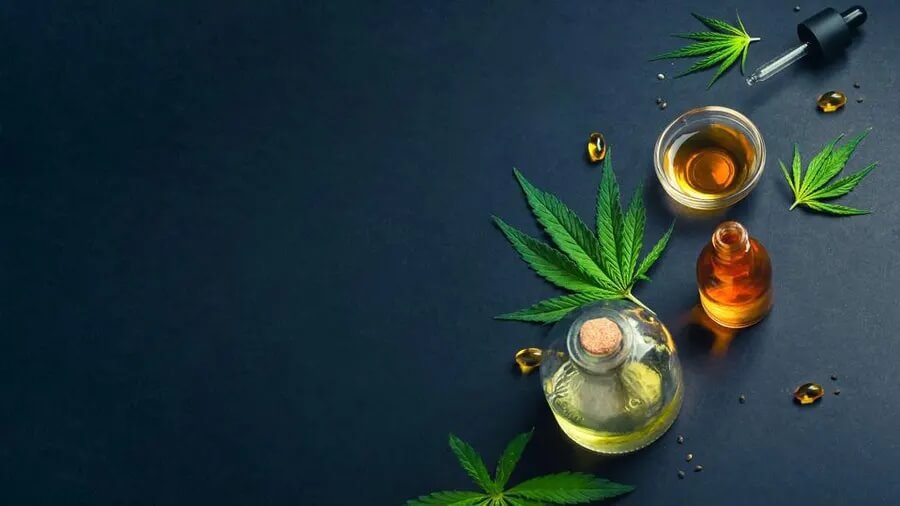
It has now been a decade since this website was launched, and the CBD industry has certainly come a long way in that time! Recently, Forbes published an article with a similar title to the one above. The addition of “science-backed” in a mainstream media headine was great to see!
The article and studies are summarized below. Prominent on the page is a disclaimer and link to a page about their Health Practices and Policies for how they cover CBD. “It is our editorial policy to not make unsubstantiated or unscientific claims in our content or recommend products derived from marijuana. Similar to our other areas of health coverage, all health claims must be attributable to a scientific study in order to align with requirements of the Federal Trade Commission (FTC),”
Optimal Delivery Methods
According to the Forbes’ article, for optimal results with CBD, “experts recommend placing oral CBD oil drops or sprays under the tongue.”
We agree with this from our results. Many of you remember all the products we’ve carried over the years, with the best results coming from the CBD Whole Flower Spray and Fluid.
Science-Backed Benefits of CBD
1. Easing Anxiety and Depression
CBD’s potential to calm nerves is well-documented. In a 2017 study featured in the Brazilian Journal of Psychiatry, men who received a 300-milligram dose of CBD before a simulated public speaking test experienced significantly less anxiety than those given a placebo. Studies on mice further suggest CBD may have antidepressant effects similar to imipramine, though human trials are needed for confirmation.
2. Managing Certain Epileptic Syndromes
The FDA has gone beyond anecdotal evidence and approved a CBD-based drug, Epidiolex, to treat seizures in Lennox-Gastaut syndrome and Dravet syndrome (two rare forms of epilepsy). Three rigorous studies supported this decision, demonstrating Epidiolex’s effectiveness in reducing seizure frequency when used alongside other medications.
3. Mitigating PTSD Symptoms
A small 2018 study in the Journal of Alternative and Complementary Medicine showed promising results. After eight weeks of CBD treatment alongside psychiatric care, 10 out of 11 PTSD patients reported decreased symptoms. It’s worth noting that experts like Margaret Rajnic emphasize CBD’s role as a supportive tool rather than a standalone PTSD cure.
4. Potential Aid in Opioid Addiction Treatment
Preclinical and human trials indicate CBD’s impact on reducing opioid dependency. Researchers found CBD significantly lowered heroin cravings, withdrawal anxiety, heart rate, and cortisol levels in people with heroin use disorder. Further research is ongoing, but CBD’s potential in addiction treatment is encouraging.
5. Alleviating ALS Symptoms
While ALS has no known cure, studies suggest that a combination of THC and CBD could improve the quality of life for ALS patients. A 2019 study showed this combination helped manage spasticity (muscle tightness), with patients experiencing high satisfaction levels.
6. Relieving Chronic Pain
Canada has approved Sativex, a THC-CBD spray, for multiple sclerosis-related and unresponsive cancer pain. US studies continue, with a 2020 study demonstrating topical CBD’s effectiveness in reducing pain and sensations associated with peripheral neuropathy. The localized nature of topical application may offer targeted relief.
7. Easing Diabetic Complications
Lab research suggests CBD could reduce the impact of high glucose levels on cells, a precursor to diabetes and its complications. Another study on type 2 diabetes patients showed CBD might help regulate insulin-related hormones, pointing to its potential as a natural treatment.
8. Neurological Disease Protection
CBD’s antioxidant and anti-inflammatory properties offer potential neuroprotection. Preclinical studies hint at benefits for Parkinson’s, Alzheimer’s, and multiple sclerosis, but more human trials are needed to solidify these findings.
9. Arthritis Symptom Management
Sativex has shown promise in the UK for rheumatoid arthritis pain and sleep improvement. A 2018 US study using synthetic CBD gel found patients with osteoarthritis knee pain experienced improved worst pain levels and physical function compared to placebo, especially men.
Conclusion
If you’d like links to these studies, please let us know. We’d be happy to provide you with more science-backed information about CBD.
